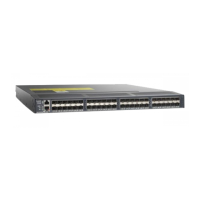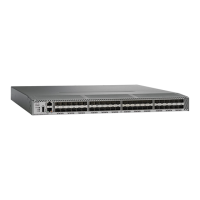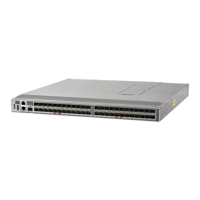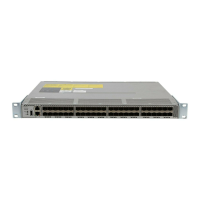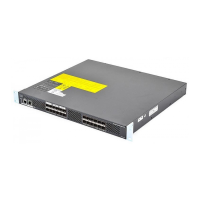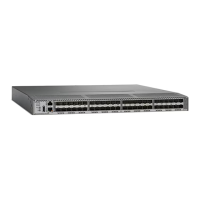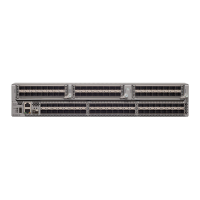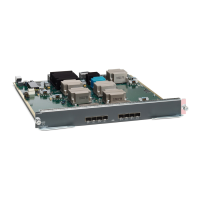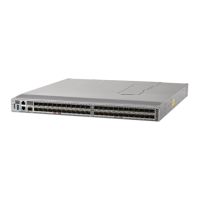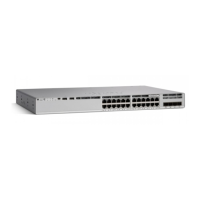Send documentation comments to mdsfeedback-doc@cisco.com
B-11
Cisco MDS 9000 Family Troubleshooting Guide, Release 3.x
OL-9285-05
Appendix B Troubleshooting Tools and Methodology
Using Cisco MDS 9000 Family Tools
The data stored by the OBFL facility includes the following:
• Time of initial power-on
• Slot number of the card in the chassis
• Initial temperature of the card
• Firmware, BIOS, FPGA, and ASIC versions
• Serial number of the card
• Stack trace for crashes
• CPU hog information
• Memory leak information
• Software error messages
• Hardware exception logs
• Environmental history
• OBFL specific history information
• ASIC interrupt and error statistics history
• ASIC register dumps
Configuring OBFL for the Switch
To configure OBFL for all the modules on the switch, follow these steps
Command Purpose
Step 1
switch# config terminal
switch(config)#
Enters configuration mode.
Step 2
switch(config)# hw-module logging onboard
Enables all OBFL features.
switch(config)# hw-module logging onboard cpu-hog
Enables the OBFL CPU hog events.
switch(config)# hw-module logging onboard
environmental-history
Enables the OBFL environmental history.
switch(config)# hw-module logging onboard
error-stats
Enables the OBFL error statistics.
switch(config)# hw-module logging onboard
interrupt-stats
Enables the OBFL interrupt statistics.
switch(config)# hw-module logging onboard mem-leak
Enables the OBFL memory leak events.
switch(config)# hw-module logging onboard
miscellaneous-error
Enables the OBFL miscellaneous
information.
switch(config)# hw-module logging onboard obfl-log
Enables the boot uptime, device version,
and OBFL history.
switch(config)# no hw-module logging onboard
Disables all OBFL features.
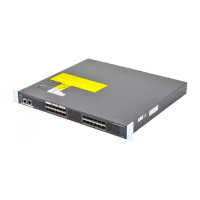
